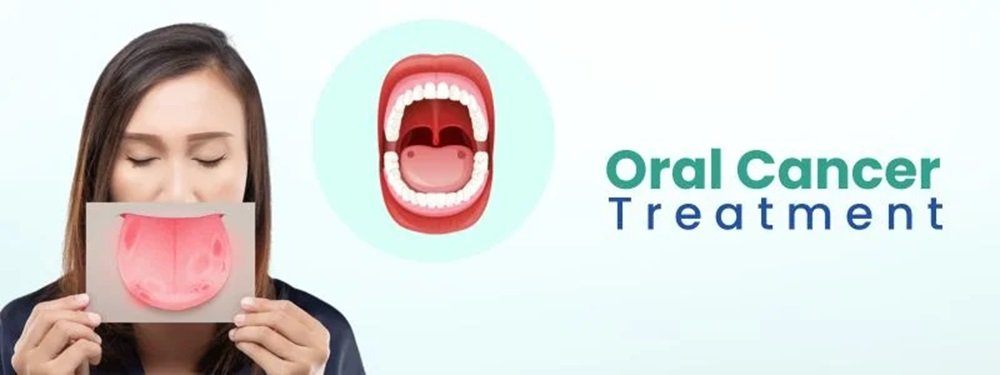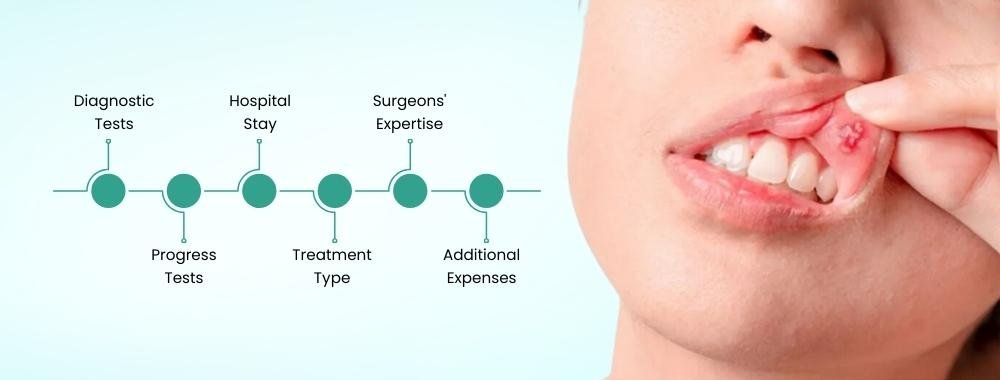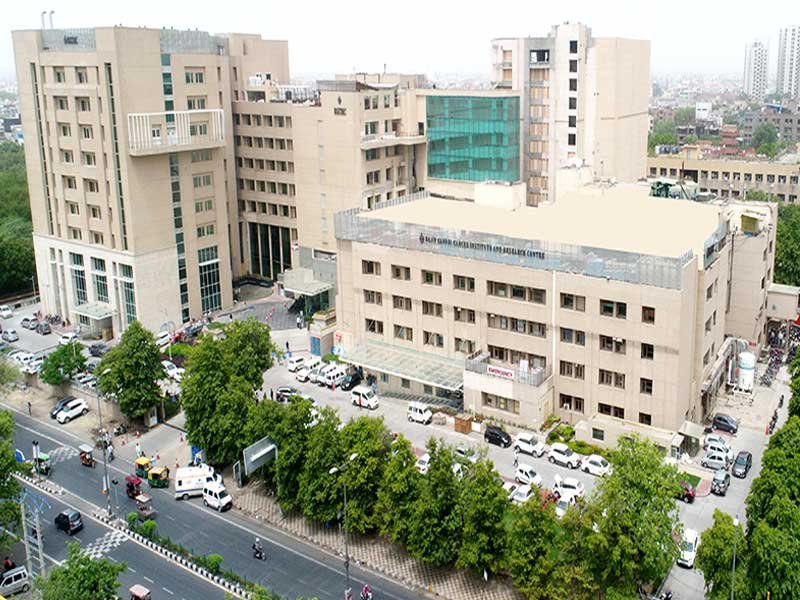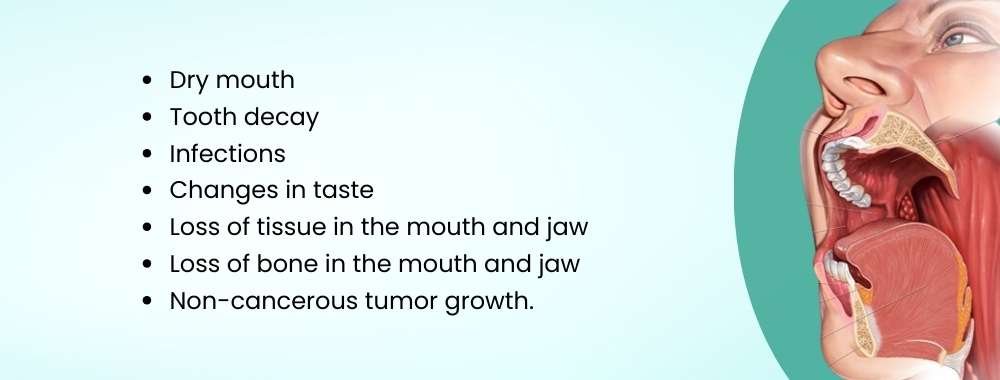Home Treatments Oncology Oral Cancer Treatment
Are you suffering from oral cancer and seeking effective treatment options at affordable cost?
Finding the right treatment option can be stressful, especially with complex procedures and financial issues, but without proper care, recovery may become more difficult.
That’s why, India provides reliable oral cancer treatment through specific centers and experienced doctors. With advanced options such as surgery, radiation, and chemotherapy, India provides high-quality care to support patients in their recovery.

Treating oral or mouth cancer can assist in avoiding consequences, and there are numerous treatment methods available depending on where the cancer is situated and its stage.
The cost of oral cancer treatment is affordable as compared to other countries which include the types of procedure, overall surgical costs, diagnosis, and post-operative care.
Cost Component | Details | Estimated Cost in USD |
|---|---|---|
Pre-operative Consultation & Diagnosis | Consultations, X-rays, MRI scans, blood tests | |
Surgery Costs | Includes surgeon fees, type of surgery, and hospital stay |
There are three types of oral cancer such as:

Country | Cost Structure |
India | |
United States | |
Germany | |
Turkey |
◾Key Takeaways
✅ Affordable Treatment Costs: India delivers affordable leukemia treatment options radiation and chemotherapy with highly skilled oncologists and hematologists. Advanced facilities, making quality cancer care accessible to international patients.
✅ Advanced Medical Technology: Indian hospitals are equipped with advanced technology and have modern infrastructure, providing quality care comparable to international standards at more affordable prices.
Oral Cancer Treatment cost
Treatment Name
Estimated Cost
Oral Cancer Treatment 2500-3000 USD
India has highly skilled doctors for oral cancer treatment, which provide expertise in surgery, targeted radiation, and chemotherapy. With specialized care and advanced techniques, they provide effective treatment for each patient.
Beds: 539
New Delhi
Beds: 230
New Delhi
Beds: 710
New Delhi
Beds: 650
New Delhi
Beds: 191
New Delhi
Beds: 310
New Delhi
Beds: 299
Gurugram
Beds: 380
New Delhi
Beds: 402
New Delhi
Beds: 1300+
Gurugram
Beds: 1000
New Delhi
Beds: 500
New Delhi
Beds: 450
Faridabad
Beds: 675
New Delhi
Beds: 500
New Delhi

Max Super Speciality Hospital, Saket

Aakash Healthcare Super Speciality Hospital

Indraprastha Apollo Hospital

BLK Max Super Speciality Hospital

Dharamshila Narayana Superspeciality Hospital

Fortis Escorts Heart Institute

Fortis Memorial Research Institute

Manipal Hospital Dwarka

Max Super Speciality Hospital Shalimar Bagh

Medanta - The Medicity Hospital

Moolchand Kharaiti Ram Hospital

Rajiv Gandhi Cancer Institute and Research Centre

Sarvodaya Hospital

Sir Ganga Ram Hospital

Venkateshwar Hospital
Indian hospitals for oral cancer treatment provide skilled specialists, advanced technology, and high-quality care, for accurate diagnosis, effective treatment, and supportive recovery for each patient’s needs.
Necessary diagnostic tests
Tests | Description |
Head and Neck FOL examination | Your doctor refers you to a specialist to check your head and neck, especially around the lymph nodes. A flexible scope or mirror is used to see deeper parts of the throat. |
Indirect Pharyngoscopy and Laryngoscopy | Small mirrors are used to visualize the throat, tongue base, and voice box. |
Direct Pharyngoscopy and Laryngoscopy | A flexible scope is inserted through the mouth or nose to see areas behind the nose and voice box. |
Panendoscopy | If you smoke or drink, a panendoscopy is done to check for other cancers. Under general anesthesia, the doctor uses scopes to see the throat, esophagus, windpipe, and bronchi. |
Biopsy | A biopsy removes a small piece of tissue to detect cancer cells. |
Lab Tests | For throat cancers, the sample can be tested for HPV, which can affect treatment choices. |
Chest X-ray | A chest X-ray has been performed to check if the cancer has spread to the lungs. |
CT Scan | It creates detailed images to show the cancer's size and location. |
MRI | Provides images of soft tissues and is used if CT scans are blurry. |
PET Scan | Uses a light radioactive substance to highlight cancer cells. |
Bone Scan | Check if the cancer has expanded to the bones. |
Barium Swallow | X-rays are carried out after drinking barium to check the esophagus (windpipe). |
Ultrasound | Sound waves formed images of the neck to check lymph nodes for any issues. |
🟢Do’s Before Surgery
✅ You should carefully follow instructions from your doctor such as dietary and medication.
✅ Inform your doctor about any survival conditions, allergies, and medications you take.
✅ Brush regularly to lower the risk of infection.
✅ Drink a lot of water to keep your body hydrated and ready for treatment.
🔴Don’ts Before Surgery
❌ You must avoid smoking and drinking because it can affect your treatment and recovery.
❌ Eat balanced food to maintain your strength, especially if there are dietary restrictions closer to your treatment.
❌ Only take medicines approved by your doctor to avoid any reaction to your treatment.
❌ Let your doctor know about any unusual symptoms before treatment begins.
The treatment depends on the location, stage, type of cancer, and individual's overall health. There are several treatment options including:
Surgery
This technique is suggested for patients with early-stage tongue cancer.
Their Side effects include:
Chemotherapy
Hyperthermia therapy
Hospital Stay and Recovery Time

Complications from oral cancer treatment are as follows:
Common long-term complications after radiation to the head or neck such as:
If you've had radiation to the head or neck, dental surgery leads to complications. Make sure to inform your dentist about your medical history and the cancer treatments you've undergone.
Why Choose Mejocare for an Oral Cancer Treatment in India?
✅ Experienced Oncologists: We connect you with highly skilled doctors who have over 20 years of experience, ensuring high-quality and reliable care.
✅ JCI/NABH Accredited Hospitals: We partner with hospitals equipped with the latest technologies, including robotics, machine learning, and advanced diagnostic and therapeutic tools. These advanced facilities provide complete and personalized care.
✅ Additional Benefits: We provide quick responses, accurate cost estimates, assistance with medical visas, accommodation in India, and priority scheduling with doctors. Additionally, we make your arrival in India easy, with airport pickup, hotel transfers, and support during your hospital stay, ensuring a smooth experience.
Oral cancer treatments can help kill or destroy cancer cells, but before starting treatment, doctors will perform tests that help determine the patient's condition, the location, stage, and extent of the cancer. Patients with oral problems are encouraged to consult their doctor.

Medically Reviewed By
Dr. Aryan Malhotra is a highly respected and compassionate medical professional with a strong academic background. He holds an MBBS and MD degree from DTMU University in Georgia. Driven by a deep sense of duty, he is dedicated to providing exceptional care to his patients.
The cost of Oral Cancer Treatment in India ranges from 2500-3000 USD.
The success rate of Oral Cancer Treatment in India is around 90%.
The hospital stay after oral cancer treatment in India is typically a few days, with ongoing specialized care required post-discharge.
Recovery time for oral cancer treatment in India varies. Minor procedures like skin transplants may take 2-3 days, while major reconstruction, such as jaw removal, can extend to a week or longer.
The life expectancy for Oral Cancer Treatment in India is over 75% survival rate after one year of diagnosis and approximately 55% of patients remain cancer-free five years or more post-diagnosis.
Treatment for oral cancer in India may pose risks such as dysphagia, altered mouth appearance, and speech problems. These may result in emotional challenges and disruptions to daily activities.
Physiotherapy for oral cancer treatment in India typically involves head and neck exercises, Therabite-assisted mouth-opening exercises, and shoulder mobility exercises. These interventions help mitigate and address the side effects of cancer therapy.
Yes, it is necessary to have a companion.
It is advisable to refrain from traveling for at least two weeks after oral cancer treatment in India to ensure proper healing of wounds and removal of any drains.
Yes, you can do your own research and choose your therapist.
Both opioid and non-opioid analgesics are viable pain management options post-Oral Cancer Treatment in India.
Yes, insurance will cover the cost of Oral Cancer Treatment in India.
Approximately after 3-4 weeks, patients can resume their normal activities, but not anything strenuous.
To discover the top doctors or hospitals in India, you can visit our website, mejocare on the doctors' page, you can filter and find the finest doctors, while on the hospital page, you can identify the best hospitals. Additionally, you can reach out to us, and we will gladly offer you all the necessary suggestions and information you need.
The entire Oral Cancer Treatment process is typically considered complete after five years, with a minimal chance of recurrence if there is no evidence of the disease during this period.
No, there is no waiting list.
Yes, you may need to undergo a physical examination and additional tests, including blood tests, to ensure your overall health before the surgery.
Propofol and remifentanil infusions, along with dexmedetomidine and sevoflurane, are commonly used for anesthesia during Oral Cancer Treatment in India.
Most patients returned to work within six months after completing therapy, with the median time being six months (range: 0 to 24 months).
Before and after surgery, adhere to dietary guidelines by minimizing salt intake to reduce blood pressure and stroke risk. Consume sugar-free items, avoid caffeine, limit fatty and processed foods, and use supplements cautiously.
Post-hospitalization care includes vital sign monitoring, wound care, addressing post-operative complications, rehabilitation services, and follow-up.
Our care team can help you.
